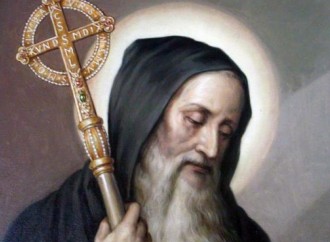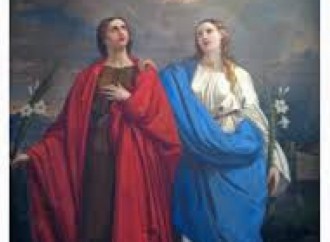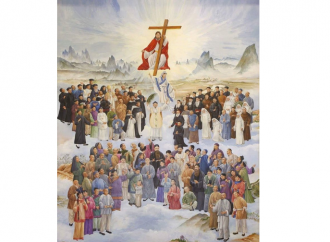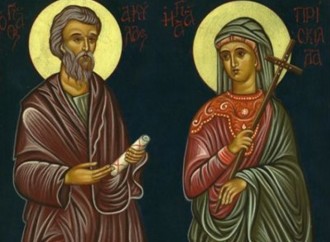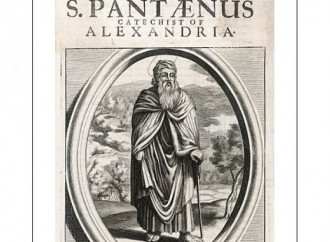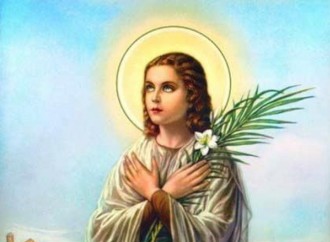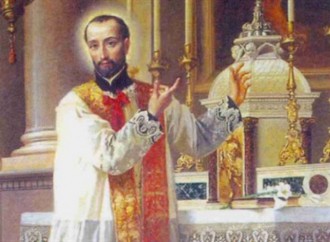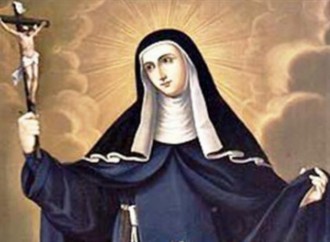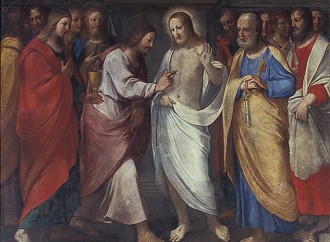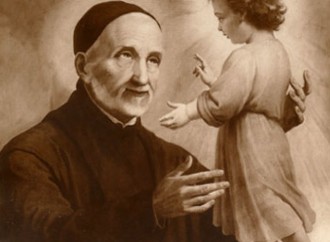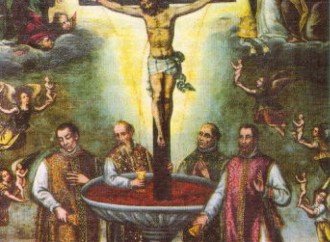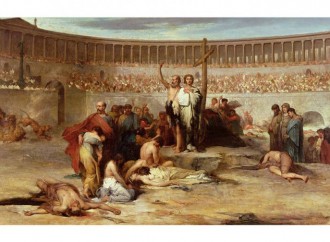Saint Benedict of Nursia
The search for God as man's first goal and the Benedictine monasteries that have sprung up in every corner of Europe bear witness to the greatness of the work of Saint Benedict (480-547), who with his life glorified the Creator and made a fundamental contribution to the formation of European civilization.
Saints Rufina and Secunda
Saints Rufina and Secunda (†257) were two sisters, both betrothed, who put God first and suffered martyrdom during Valerian's persecutions. Their names are mentioned in several ancient documents...
Holy Chinese Martyrs
The liturgical calendar commemorates today the heroic testimony of a large number of martyrs who made themselves imitators of Christ crucified in order to guard their greatest gift, faith, by shedding the blood with which the Chinese Church was built.
Saints Aquila and Priscilla
They are among the first great examples of Christian spouses, persevering in faith and united in joy and adversity. Saints Aquila and Priscilla (diminutive of Prisca) are known for their work in the nascent Church and the great help given to Saint Paul, who in his Letter to the Romans left us a beautiful eulogy of the couple...
Saint Pantaenus
Saint Pantaenus († c. 200), an important apologist and missionary of the 2nd century, originally from Sicily, was trained in the school of the Stoic philosophers and as an adult had experienced a radical conversion to Christianity.
Saint Maria Goretti
The heroic life of Saint Maria Goretti (1890-1902) is like an anthology of virtues, full of teachings now forgotten by the world and even mocked. “The sweet little martyr of purity” (as Pius XII called her when he canonized her) preferred earthly death rather than sin with the one who became her executioner.
Saint Anthony Mary Zaccaria
“It is the nature of great hearts to put themselves at the service of others without reward and to fight not for pay”, said the founder of the Barnabites, Saint Anthony Mary Zaccaria (1502-1539), one of the protagonists of the Catholic Reformation.
Saint Elizabeth of Portugal
Tireless in charity, in prayers, in fasting. Saint Elizabeth of Portugal (1271-1336), also known as Isabella of Aragon, was a woman who marked an era, although not many people know her extraordinary figure today.
Saint Thomas
We often wrong Saint Thomas, also known as Didymus (both names, the first Aramaic and the other Greek, mean “twin”), by remembering only his disbelief. This, among other things, plays a providential role in the economy of salvation, as Saint Gregory the Great effectively explained in one of his homilies.
Saint Bernardino Realino
Before deciding for religious life and becoming the patron saint of Lecce in a very singular way, Saint Bernardino Realino (1530-1616) had had an honest and brilliant career as an administrator. He grew up with many interests and sometimes risking the abyss, from which he was saved thanks to his faith.
Most Precious Blood of Jesus
The faithful of all times and in particular the saints have always shown great piety towards the Most Precious Blood of Jesus, which the Church celebrates on 1 July in the Extraordinary Form of the Roman Rite, with the liturgical rank of solemnity.
Holy First Martyrs of the Church of Rome
The day after the Solemnity of Saints Peter and Paul, the Church celebrates the many Christian martyrs who were brutally killed during the first persecution in Rome, which took place under Nero and began in 64.
